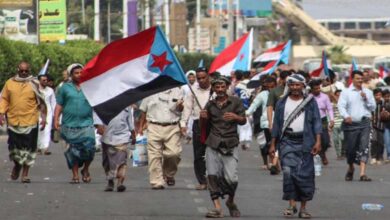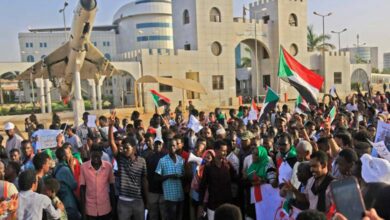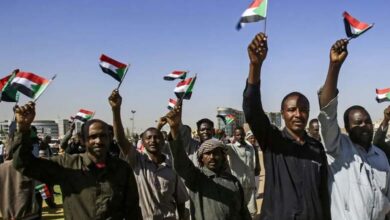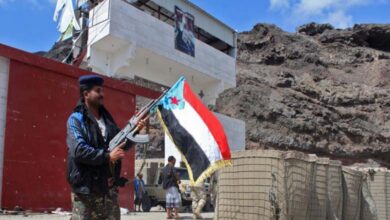Al-Jazeera’s recruitment of Zitouna channel employees after its closure angers Tunisians

Days after the Tunisian authorities shut down the Zitouna channel, which is close to the Ennahdha Party, which is affiliated with the Muslim Brotherhood, the real connection between this terrorist platform and Qatar’s Al Jazeera was revealed.
Al-Jazeera suspends staff
The Qatari Al-Jazeera Channel decided to employ the employees of Zitouna Channel after it was closed by the Tunisian authorities, in a clear defiance of the Tunisian people and authorities, which reveals the continuation of supporting the media of the Brotherhood.
This shows the extent of the terrorist affinity between Zitouna and Al-Jazeera, as is the custom of the Qatari platform that attracts workers and channels that support terrorism and extremism, paying attention only to their interests and implementing the agendas of sabotage and destruction in the Arab region.
This step showed the remarkable rapprochement between the two channels and the speed with which Al-Jazeera takes measures to host Zitouna workers, which raises suspicions that they are affiliated with the same main sources of funding, that the Brotherhood has control over the Qatari channel, and that it has overthrown the basics of the profession and that it wants to continue supporting terrorism.
Popular rejection
The decision was met with broad popular rejection in Tunisia and condemnation of Al Jazeera’s attempts to support Brotherhood terrorism. Tunisians denounced the Qatari channel’s provocative plans on social media.
Dalya Fahmi, a Tunisian citizen, wrote on her Twitter account: “As usual, Al-Jazeera continues to support and attract those working and channels that support terrorism and extremism and care only about its interests and the implementation of its agendas of subverting and destroying countries,” she said, calling for the need to counter such attempts.
Horeya Mahmoud, a Tunisian, said: “Al-Jazeera, as always, has supported extremism and terrorism and continues to target and influence Arab public opinion, and is trying to destabilize Arab societies by supporting terrorism, calling for sedition and spreading lies.”
Observers recalled the corrupt Zitouna channel’s plans in advance, with Tunisian blogger Yasmin Mikao writing: “Prior to its closure, the Zitouna channel aired incitement against President Kais Saied and supported some leaders of the Muslim Brotherhood organization, including former President Moncef Marzouki.”
Zitouna closure
According to HAICA, the decision comes after several warnings were issued to shut down the channel for not obtaining a legal license and for inviting it to regularize its status, and also after the channel highlighted financial irregularities but without any response.
- Tunisia: Tunisians are pleased with the decision to close down the illegal Ennahdha Chanel ”Zitouna”
Zitouna, a private channel close to Ennahdha, is founded by Oussama ben Salem, son of a party leader and former minister Moncef Ben Salem, before he sold his shares in the channel to his partner.
Amer Ayad, a talk show host at the channel, was also arrested on charges of “undermining state security”.
The closure was issued four years ago but was disrupted by the Brotherhood’s Ennahdha Movement, which controlled the country because the channel’s founder was the Muslim Brotherhood and its leader Oussama ben Salem, son of the Brotherhood and former minister Moncef ben Salem.
“In a joint statement, 19 Tunisian human rights organizations expressed their satisfaction with the application of the law on Zitouna channel, which was broadcasting in a chaotic manner, in addition to urging it to differentiate between Tunisians and Ennahdha’s party propaganda, discredit its opponents and disregard the decisions of the Independent High Commission for Audiovisual Arts.”
The HAICA associations demanded that “an end be put to the illegal broadcasting of Nessma and Hannibal channels (private), clarifying that the previous governments stood by their rebellion against the law, and the resulting tightening of the grip of political and financial lobbies on the media, flagrant violations of the ethics of journalistic work, horrific exploitation of young journalists, and abuse of the status of the press profession in society.”
Naziha Rejiba, a political activist in Tunisia, called for “making this decision public on other television and radio channels that do not have legal licenses to work,” adding that “these channels act as mouthpieces for sedition and propaganda and empower the state with suspicious funds.”
Tunisian media professional Mohammed Hadj Mansour said, “The closure of the Muslim Brotherhood channel is just a push on the account,” pointing out that “closing the Zitouna channel and then directing the High Authority for Audiovisual Communication to issue a final warning to cut the broadcast immediately before the equipment is confiscated for the Brotherhood’s media channels, Nessma and Hannibal, is a step forward.”












